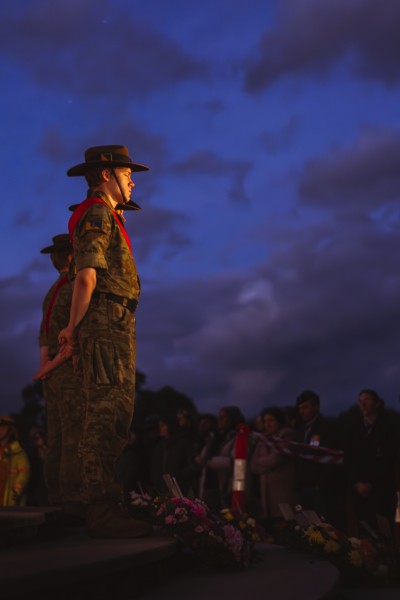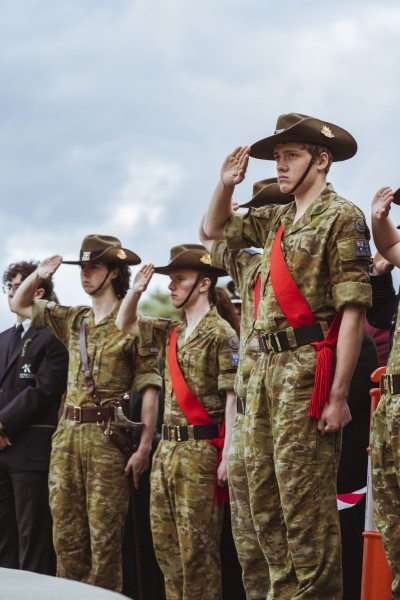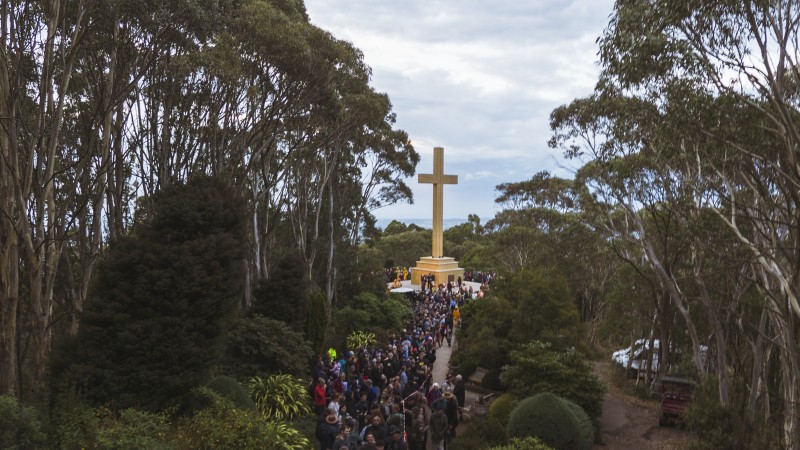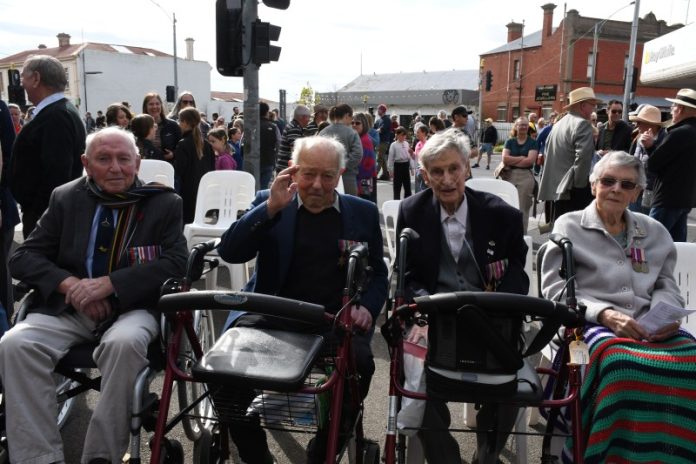South Vietnam, 1966: An isolated company of 108 Australian soldiers is outnumbered by 2000-strong Viet Cong. They trade fire for four hours and 18 Australian lives are taken. Francis Donovan, a medic on the battlefield, attends wounded 20-year-old Les Farren. He lays unconscious with his groin destroyed and legs detached. He opens his eyes a final time and calls for his mum; he dies in Francis’ arms.
Francis stands in complete darkness on a mountaintop, grasps his harmonica and croons, “War bleeds on down through the families”. Only the sound of wind and sniffles ensue. Francis is completely surrounded and cannot see it. As the sun rises, a thousand faces form but it isn’t their battalion. They show no fear.
Francis is no longer at the Battle of Long Tan; the medic is at the Mount Macedon Memorial Cross commemorating Les and every other Australian soldier for this year’s Anzac Day Dawn Service.
Francis sang Bleed On Down, an original song about the mental and physical impact war had on those who served and their families. It was the theme of the Cross’ Anzac Day service. Servicemen and women across the region spoke of their experience and commemorated those who served but are no longer with us.
WOUNDED AT GALLIPOLI
Colonel John Charles Barrie (1883-1957), was a local who worked at the Colonial Bank Kyneton. He was at the landing in Gallipoli and received a bullet to the chest that would remain there for the rest of his life.
He later served at the Western Front and was wounded again, but in the midst of his pain he wrote home to his mother suggesting otherwise. It appeared in the Kyneton Guardian on June 17, 1915:
“I am in a sorry plight and can only write with difficulty; but I am still smiling and I want you, please, not to worry about me at all, for I am getting the very best attention, and although it may be a long time, I will eventually be as good as ever again.”
Barrie’s “unseen wounds of conflict” wasn’t a conversation he and his fellow soldiers had when they came home. His trauma remained as hidden scars for decades.
FIVE DEPLOYMENTS, NO RESPECT
Craig Byrne, joined the Australian Army in 1980 and completed five deployments in his 40 years and four days of service. When he came home from Iraq, he was spat on.
“I walked out of Victoria Barracks in my uniform because I lived close by. I was walking home and this guy had come up to me and he spat on me. He spat on my face and he spat on my uniform,” Byrne said.
“And what I did was, I said ‘thank you’ to him. I said ‘thank you’.
“What you’ve just done to me proves that what I do in service makes a difference. What I do in service allows you the freedom to come and spit on me and there’s no retribution for doing that.
“That’s why I serve.”
THE LUCKY ONES
Greg Hughes, president of Castlemaine RSL, also understands what it is like to be spat on. He was conscripted as a National Serviceman at 18 years old and said the cultural uproar of the Vietnam War left lasting impacts.
When the war ended, he was denied entry to the RSL because it wasn’t a “real war” in the minds of its members who fought in the Great Wars.
“If you wandered around in uniform, you got spat on,” he said.
“There were a lot of horrible things happening in Vietnam, and they had to live with it for the rest of their lives.
“When they came home, there was no-one to greet them.”
Greg’s beginnings in the army were similar to Les Farren’s, except he wasn’t called up to serve overseas. He’s been forever grateful for this. Les was the first Victorian National Serviceman to die in the Vietnam War. A keen photographer and the only son of Thomas and Lillian Farren, he died June 10, 1966. He was 19 days short of his 21st birthday.
Lest We Forget.

All quiet at the Memorial Cross. 
A salute to the fallen. 
The crowd at the cross. Photos: KGMG Creative








